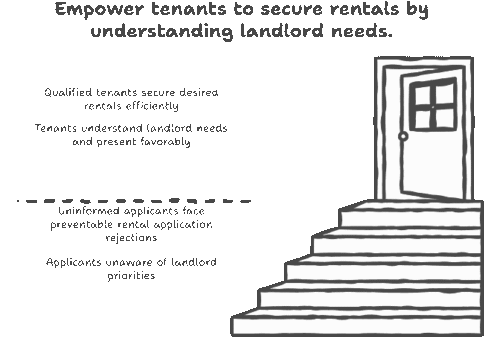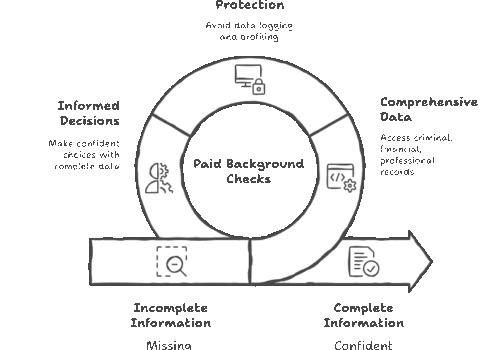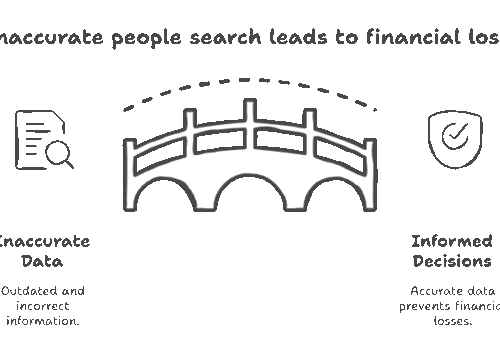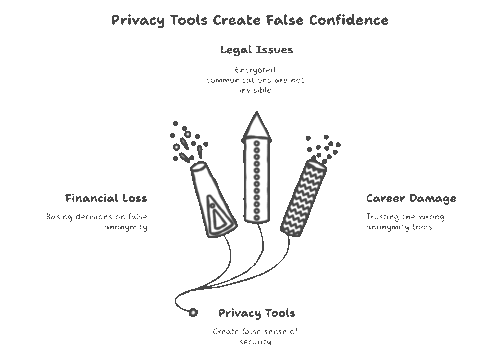How I Use Multiple Search Engines to Build Complete Background Profiles (And Why Google Alone Will Screw You Over)
Here’s what pisses me off about people doing online investigations: they Google someone’s name, find three outdated LinkedIn profiles and a Facebook page from 2019, then act like they’ve done thorough research. It’s lazy, it’s incomplete, and if you’re making business decisions or legal judgments based on that kind of surface-level searching, you’re asking for trouble.
I learned this lesson the expensive way seven years ago when I was vetting a potential business partner for a $180,000 real estate deal. Google made this guy look clean – successful entrepreneur, glowing testimonials, solid social media presence. What I didn’t find through my half-assed Google search was the bankruptcy filing from two years earlier, the three eviction notices, and the ongoing lawsuit for fraud in another state.
Cost me six months of legal headaches and about $30,000 in fees to untangle that mess. Could have been avoided completely if I’d known how to actually investigate someone properly instead of just playing around on Google for twenty minutes.
Why Google Is Lying to You (And You’re Letting It Happen)
Let me destroy a myth that’s costing people money every day: Google does not index the entire internet. Not even close.
Google’s algorithm is designed to show you popular, recent, and commercially relevant results. It’s optimized for selling ads, not finding truth. That bankruptcy filing that could save you from a bad business deal? Buried on page 47 of search results, if it shows up at all. That criminal record from a different state? Might not appear in Google’s index for months, if ever.
Here’s what really opened my eyes: I tested this by searching for my own information across different engines. Google found my business website, a couple of news interviews, and my LinkedIn. That’s it. Missing were two property purchases, a small claims court case I won, three business licenses, and a professional certification that’s listed in a state database.
If Google can’t even find comprehensive information about me – and I actually want to be found online – how the hell is it going to find accurate information about people who might be trying to hide things?
The deep web contains 500 times more information than the surface web. Most of that is in specialized databases, government records, professional directories, and niche websites that Google either can’t access or doesn’t prioritize.
Every search engine has algorithmic blind spots. Google focuses on popular content and commercial sites. Bing is better at finding multimedia and social content. DuckDuckGo doesn’t track you, but its index is smaller. Yandex (the Russian search engine) finds different international content.
The Real Search Engine Arsenal (Tools That Actually Work)
After years of testing everything, here are the platforms I actually pay for and use regularly:
Public Records Powerhouses
TruthFinder: The Criminal Background Specialist Monthly cost: $28.78 What it actually finds: Criminal records, court filings, arrest records, sex offender registries
This thing digs up criminal history that Google will never find. I discovered a potential tenant had three DUI convictions and a domestic violence charge – information that wasn’t showing up anywhere else. The guy seemed perfectly normal in person, clean social media, good references. Would have been a disaster.
BeenVerified: The Address and Asset Tracker Monthly cost: $26.89 What it finds: Property records, previous addresses, asset information, liens
Tracks people’s housing history and financial troubles. I use this when people claim they’ve “never been evicted” or “always owned their homes.” Found a business partner candidate who’d been evicted four times in three years and had two tax liens against him. His credit report somehow didn’t show the evictions.
Spokeo: The Relationship Mapper Monthly cost: $19.95 What it finds: Family connections, associates, social media aggregation
This is gold for understanding who someone really associates with. Found out a “independent contractor” was actually the brother-in-law of my biggest competitor. That context completely changed the nature of our business relationship.
Social Media Intelligence
Pipl: The Profile Aggregator Cost: $0.99 per search What it finds: Social media profiles across dozens of platforms, email addresses, usernames
Finds social media accounts that people think are hidden. Discovered a job candidate had a Twitter account full of racist rants under a slightly different name. Would never have found it through normal social media searches.
Social Catfish: The Identity Verification Tool Monthly cost: $29.95 What it finds: Fake profiles, catfish detection, reverse image searches
Saved me from a romance scam when I was helping a friend investigate someone she met online. The photos were stolen from a model’s Instagram, and the “successful businessman” was actually using fake credentials across multiple platforms.
Specialized Deep Web Tools
Whitepages Premium: The Contact Information Specialist Monthly cost: $19.95 What it finds: Current phone numbers, email addresses, detailed contact history
This is my go-to for finding current contact information when people have moved around a lot. Found a missing heir for an estate case when the family had been searching for two years. Guy had moved six times and changed phone numbers four times, but Whitepages tracked him through utility connections and voter registrations.
PACER: The Federal Court Records Database Cost: $0.10 per page viewed What it finds: Federal court cases, bankruptcy filings, federal criminal records
This is where you find the serious legal stuff. Bankruptcy filings, federal lawsuits, major fraud cases. Found out a potential investor had been involved in a federal securities fraud case that was sealed from most public view. PACER had the entire case file.
LexisNexis Accurint: The Professional-Grade Tool Cost: Requires professional credentials, about $50 per comprehensive report What it finds: Everything – criminal records, financial history, property ownership, professional licenses
This is what lawyers and private investigators use. Not available to general public, but if you know someone in legal/PI/insurance industry, this is the gold standard. Most comprehensive reports I’ve ever seen.
The Multi-Engine Investigation Method That Actually Works
Here’s the systematic approach I’ve developed over seven years of doing this professionally:
Phase 1: Surface Intelligence Gathering
Start with the basic searches across multiple engines, but do it systematically, not randomly.
Google search variations: “John Smith”, “John A Smith”, “J Smith”, “Johnny Smith” Bing for images and videos: Often finds social media content Google misses DuckDuckGo for unfiltered results: No personalization means you see different results Yandex for international connections: Especially useful if the person has any overseas ties
I search the exact same terms across all four engines and compare results. You’d be amazed how different the information is. Found a business partner’s criminal conviction in Russia through Yandex that didn’t show up anywhere in US search engines.
Phase 2: Public Records Deep Dive
This is where most people stop, but it’s where I’m just getting started.
Property records: Who owns what, when they bought it, what they paid, any liens or mortgages Court records: Civil cases, criminal cases, traffic violations, restraining orders Business registrations: LLC filings, professional licenses, trademark applications Voter registrations: Political affiliations, address history, voting frequency
I once found out a potential business partner was involved in 17 different LLCs over five years – classic shell company behavior that suggested either tax evasion or asset hiding. This wasn’t showing up in any background check services.
Phase 3: Social Media Archaeology
People think deleting posts makes them disappear. That’s adorable.
Archive.org Wayback Machine: Shows historical versions of websites and social media profiles Cached Google pages: Recent versions of deleted content Cross-platform username searches: Same username often used across multiple platforms Image reverse searches: Find where else their photos have been used
Found a job candidate’s deleted Twitter account through Archive.org that showed a pattern of inappropriate workplace comments. The account had been deleted before they applied, but the internet remembers everything.
Phase 4: Financial and Professional Intelligence
This is where you separate people who are actually successful from people who just look successful online.
Professional licensing boards: Verify credentials, check for disciplinary actions Better Business Bureau: Business complaints and ratings SEC filings: If they claim to run a public company or be an accredited investor Patent and trademark databases: Verify intellectual property claims
Had a guy claiming to be a “successful tech entrepreneur” with multiple patents. Took me ten minutes to verify he had zero patents, zero successful businesses, and had been sued by his last three business partners.
Verification Methods (Because People Lie)
Here’s what separates amateur internet stalking from professional investigation: everything gets verified through multiple sources.
Cross-Reference Everything
Never trust a single source for any piece of information. I verify everything through at least two independent sources.
Address verification: Property records + voter registration + utility connections Employment verification: LinkedIn + professional licenses + company directories Criminal history: Multiple court databases + news articles + arrest records
Found a guy claiming to be a doctor who had fake medical licenses, fake university degrees, and fake hospital affiliations. Each lie was carefully constructed and would have fooled a basic background check, but they couldn’t maintain consistency across multiple databases.
Timestamp Analysis
When was information posted? When was it last updated? Are there inconsistencies in timelines?
Red flags to watch for:
- Social media posts claiming to be somewhere when other evidence shows they were elsewhere
- Employment dates that don’t match public records
- Educational claims that don’t match graduation records
- Property ownership claims that don’t match deed records
Reverse Verification
Start with known facts and work backwards to see if someone’s claims make sense.
If someone claims to have graduated from Harvard in 2010 with an MBA, I can verify:
- Harvard’s graduation records (if accessible)
- Alumni directories
- Previous employment that would make sense with that timeline
- Social media posts from that time period
- Geographic location during those years
Real Cases That Show How This Works
Case Study 1: The Fake Investor
Client wanted to verify a potential investor who claimed to have $2 million available for a real estate project.
Google results: Clean LinkedIn profile showing “Managing Partner at Investment Firm,” professional headshots, some news mentions about successful deals.
My multi-engine investigation revealed:
- No SEC filings for his claimed investment firm
- “Investment firm” was a sole proprietorship with no assets
- Three previous business partners had sued him for fraud
- His “luxury home” was actually his elderly mother’s house (property records)
- His “successful deals” were copied from other people’s press releases
Outcome: Client avoided a $50,000 loss when the guy disappeared after getting initial payments.
Case Study 2: The Missing Heir
Law firm hired me to find an heir for a $180,000 estate. Family had been searching for three years.
Previous searches: Standard people search sites found nothing. Guy seemed to have vanished.
My approach:
- Found his ex-wife through divorce records
- Located his brother through voter registrations
- Tracked him through utility connections in another state
- Verified identity through military service records
Outcome: Found him living under a slightly different name in Nevada. He’d had no idea his uncle had died and left him money.
Case Study 3: The Employment Fraud
HR department asked me to verify a candidate’s claims about having a master’s degree and previous executive experience.
Resume claims: MBA from prestigious university, five years as VP at Fortune 500 company.
Investigation results:
- University had no record of his attendance
- Company confirmed he’d worked there, but as a customer service rep, not VP
- LinkedIn profile showed executive title, but employment dates didn’t match company records
- Found court records showing he’d been terminated for expense account fraud
Outcome: Company avoided hiring someone with a pattern of dishonesty and theft.
The Future of People Search (It’s Getting Scarier)
The technology is evolving faster than privacy laws can keep up.
AI-powered facial recognition can now identify people from a single photo across millions of images online. Upload someone’s picture, and AI can find every social media account, news article, or public database that contains their image.
Behavioral pattern analysis can predict where someone will be based on their historical movement patterns. If you go to Starbucks every Tuesday morning for six months, AI can predict you’ll be there next Tuesday even if you don’t post about it.
Dark web integration is bringing previously hidden information into searchable databases. Information from data breaches that was only available to hackers is now being indexed by search engines.
Real-time monitoring allows continuous tracking of someone’s online activity across multiple platforms simultaneously. New posts, location changes, contact information updates – all flagged automatically.
The privacy tools aren’t keeping pace. Most people have no idea how much information about them is publicly available and searchable.
The Bottom Line
Google is not research. Facebook stalking is not investigation. Real background verification requires systematic use of multiple databases, careful verification of information, and understanding of how different pieces of data connect to form a complete picture.
The tools and techniques I’ve described can reveal an incredible amount of information about almost anyone. Use this knowledge responsibly. The goal should be making better-informed decisions about people you’re considering doing business with, not violating someone’s privacy for entertainment.
After seven years of professional investigation work, I can tell you this: the information is out there, it’s more comprehensive than most people realize, and it’s easier to find than ever before. The question isn’t whether you can learn everything about someone online – it’s whether you should, and what you’ll do with that information once you have it.
Choose wisely.




